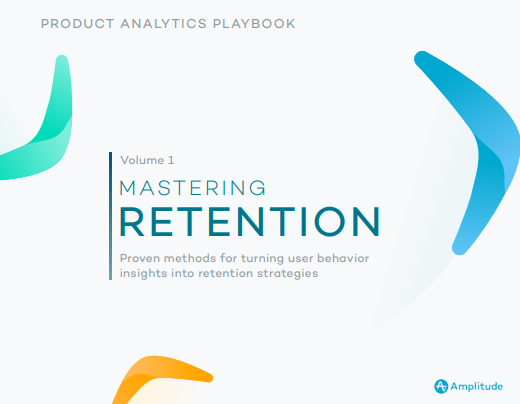How to boost ROI from your CRM system
To deliver the results you want, you need to understand the full capabilities of your CRM system

Managing a large enterprise isn’t an easy job. Many business leaders find they spend much of their time putting out fires and keeping the lights on, rather than delivering genuine business value. Demonstrating return on investment for CRM systems can be particularly challenging.
As the core of any company’s sales operation, a CRM is frequently among the most business-critical tools within an organization’s IT stack, but it's simultaneously one of the hardest to realize ROI from. While the potential benefits it can offer to large enterprises are enormous, many organizations struggle to make the best use of their CRM systems, and they often become more of a cost center than a true enabler of profit and productivity.
This makes it especially frustrating when your CRM platform isn’t delivering the capabilities, the results and, ultimately, the value that you’re expecting from it. CRM should be an enabler for the business as a whole, but all too often it’s seen as an obstacle to work around, rather than an asset to be leveraged. Complex and unintuitive CRM platforms can restrict productivity and prevent your large business from realizing its true potential, whereas platforms with a user-friendly interface make it quicker and easier for sales teams to get up and running.
Making the most use of the features you have
There are several reasons why your CRM system might not be delivering the level of return on investment that it could be. The easiest one to spot is under-utilization of the features it offers. If all you’re using your CRM for is hosting the names and contact details of sales leads, then you may as well be using a spreadsheet. Modern CRM platforms like Zoho offer a whole host of capabilities beyond this that can help accelerate your sales pipelines.
Ensuring your sales teams have access to as much information on your customers as possible is key to ensuring a rich and productive relationship for both parties, with the right level of personalization to make clients feel truly valued, and the ease of use to keep your employees happy. Using your CRM system’s robust filtering tools allows them to quickly sift through a large quantity of records, so their time isn’t taken up trawling through extensive databases looking for key details.
As a starting point, you can use in-depth lead management tools, which include significantly deeper and more granular categorization options for customers and prospects, including lead status, contact history and account value. Automatic lead-scoring can also use rules-based logic to flag the most promising relationships, allowing your staff to effectively prioritize their time, with automated follow-up prompts to ensure that leads are kept warm. Integration with data from marketing systems also allows for more efficient, personalized communication with customers, leading to more productive relationships and greater conversion.
Acquiring new leads
CRM systems don’t just help you manage existing customers, though – they can also help you acquire new leads more easily. Using built-in tools to create web forms and online portals gives you more channels for passive customer acquisition. Prospective clients simply enter their details, and they’ll be instantly added to your CRM platform with all the relevant fields pre-populated, shortening the time it takes to convert them.
This allows companies to strengthen their omni-channel proposition by giving customers more ways to contact them and the freedom to engage in the way that best suits their preferences. By the same token, modern CRM suites like Zoho also include email management tools and social dashboards, all feeding into centralized customer records to provide a complete picture of how your business is interacting with your clients.
One benefit of this joined-up approach is that it can be supported with flexible customer journey modeling, in dynamic multi-stage workflows to guide customers from initial interest to closed deal. If it comes equipped with the right features, your CRM system can be used to blueprint these customer journeys, triggering internal actions at various stages such as automatically sending price lists, flagging opportunities or action points to relevant sales reps, and automatically creating draft invoices.
Streamlining internal processes
These rules-based workflows can be created directly within your CRM platform to formalize the steps that sales staff should be following in order to maximize their conversion rates, with the correct information and tooling on hand to make them as successful as possible at every stage.
CRM suites such as Zoho include a wide range of tools to help sales personnel maximize the value they’re delivering, but that’s not the only way they can be utilized. You can extract further return on investment by rolling CRM functionality out to other departments within your organization. Marketing is the most natural extension, and there are many opportunities to increase the effectiveness of your campaigns through data held in your CRM system, such as sending out refresher campaigns to nurture cooler leads and adding naturalistic personalization to outbound communications.
However, you can also use it to speed up line-of-business tasks like finance processing and reconciliation. If your organization’s sales teams are using your CRM software’s built-in tools for invoice generation and purchase orders, these can be easily fed through to finance and accounting platforms through API-driven integrations. Native forecasting tools can also be used to obtain quick predictions for forthcoming sales trends, allowing you to plan your investments in advance.
Further flexibility can be added by enabling integrations with other third-party cloud tools, including enabling marketing automation platforms to optimize campaigns with data, and linking your CRM with enterprise software tools like Marketo, SAP or ServiceNow to extend the functionality of your digital infrastructure.
Once you’ve got a fully connected cloud estate, automation allows you to supercharge your growth efforts. Deploying smart process automation means your teams will spend less time on manual tasks, and can spend more time creating value for the organization. What’s more, with all of the relevant information collated in one central repository, they can also leverage data-driven insights on underlying trends and patterns to optimize their sales efforts.
Making a CRM deployment work for your business doesn’t need to be an obscure, arcane process. Modern platforms like Zoho CRM offer a huge range of features designed to add more value to your organization by making employees more efficient and effective at a variety of tasks. Taking the time to explore these functions – and the ways you can customize and leverage them to best meet the needs of your organization – can help boost the ROI of your CRM system, and turn it into a genuine business accelerator.
Learn more how Zoho can help you to boost CRM adoption and ROI in your business
Sign up today and you will receive a free copy of our Future Focus 2025 report - the leading guidance on AI, cybersecurity and other IT challenges as per 700+ senior executives
ITPro is a global business technology website providing the latest news, analysis, and business insight for IT decision-makers. Whether it's cyber security, cloud computing, IT infrastructure, or business strategy, we aim to equip leaders with the data they need to make informed IT investments.
For regular updates delivered to your inbox and social feeds, be sure to sign up to our daily newsletter and follow on us LinkedIn and Twitter.
-
 Why you should invest in your CRM system
Why you should invest in your CRM systemSponsored A unified and better integrated service can boost efficiency, digital transformation and customer experience
-
 Twilio tackles 'crucial' customer retention with trio of platform upgrades
Twilio tackles 'crucial' customer retention with trio of platform upgradesNews The company believes that retaining customers and maximising LTV is crucial in weathering the current macroeconomic headwinds
-
 Mastering retention
Mastering retentionWhitepaper Turning user behaviour insights into retention strategies
-
 How customer relationship management (CRM) can help your business
How customer relationship management (CRM) can help your businessIn-depth Are you still keeping customer details in a simple database or spreadsheet? There are several benefits of adopting an integrated CRM system
-
 Microsoft announces Teams chat integration for Dynamics 365
Microsoft announces Teams chat integration for Dynamics 365News The integration offers features to streamline collaboration between teams while aiming to enable the faster closing of sales
-
 1.2m businesses now eligible for UK gov's software discounts
1.2m businesses now eligible for UK gov's software discountsNews Help to Grow: Digital scheme offers up to £5,000 off selected CRM and e-commerce software
-
 Trust is vital to the future of customer experience
Trust is vital to the future of customer experienceSponsored As third-party cookies enter their twilight, more trustworthy systems are essential to deliver the kind of digital relationships companies and customers need
-
 Microsoft launches Digital Contact Center Platform
Microsoft launches Digital Contact Center PlatformNews The tech giant's new service will pull together features from Dynamics, Teams and Nuance AI for customer service automation



